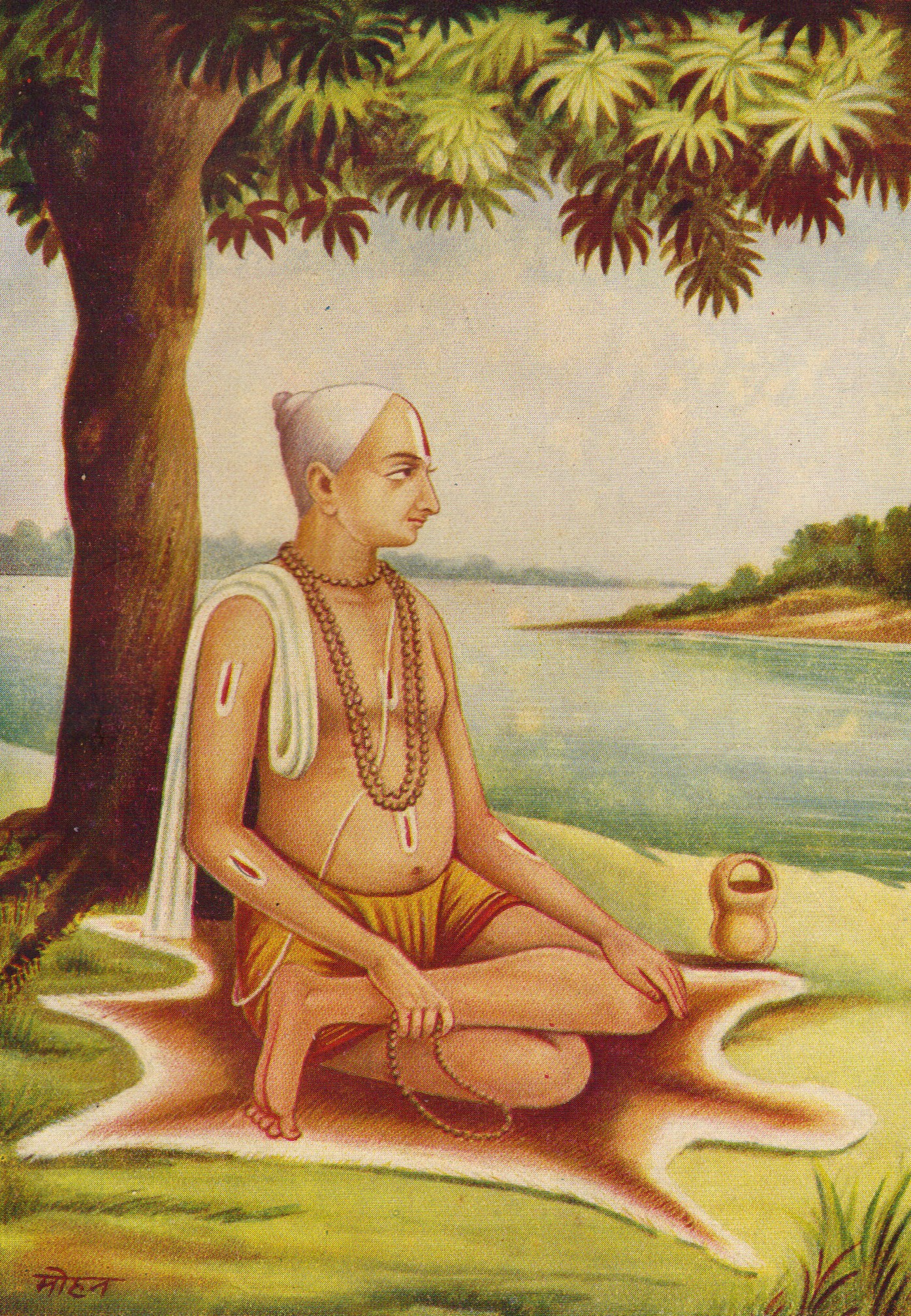|
Tulsidas
Tulsidas (; born Rambola Dubey; also known as Goswami Tulsidas; c.1511pp. 23–34.–1623) was a Ramanandi Vaishnava Hindu saint and poet, renowned for his devotion to the deity Rama. He wrote several popular works in Sanskrit and Awadhi, but is best known as the author of the ''Hanuman Chalisa'' and of the epic '' '', a retelling of the Sanskrit ''Ramayana'' based on Rama's life in the vernacular Awadhi. Tulsidas spent most of his life in the city of Varanasi and Ayodhya. The Tulsi Ghat on the Ganges River in Varanasi is named after him. He founded the Sankatmochan Temple dedicated to Lord Hanuman in Varanasi, believed to stand at the place where he had the sight of the deity. Tulsidas started the Ramlila plays, a folk-theatre adaptation of the Ramayana.: ... this book ... is also a drama, because Goswami Tulasidasa started his ''Ram Lila'' on the basis of this book, which even now is performed in the same manner everywhere. He has been acclaimed as one of the greatest poet ... [...More Info...] [...Related Items...] OR: [Wikipedia] [Google] [Baidu] |
Ramcharitamanas
''Ramcharitmanas'' ( deva, श्रीरामचरितमानस, Rāmacaritamānasa), is an Epic poetry, epic poem in the Awadhi language, based on the ''Ramayana'', and composed by the 16th-century Indian bhakti poet Tulsidas (c. 1532–1623). This work is also called, in popular parlance, ''Tulsi Ramayana'', ''Tulsikrit Ramayana'', or ''Tulsidas Ramayana''. The word ''Ramcharitmanas'' literally means "Lake of the deeds of Rama". It is considered one of the greatest works of Hindu literature. The work has variously been acclaimed as "the living sum of Indian culture", "the tallest tree in the magic garden of medieval Indian poetry", "the greatest book of all devotional literature" and "the best and most trustworthy guide to the popular living faith of the Indian people".Lutgendorf 1991, p. 1. Tulsidas was a great scholar of Sanskrit. However, he wanted the story of Rama to be accessible to the general public, as many Apabhramsa languages had evolved from Sanskrit and at ... [...More Info...] [...Related Items...] OR: [Wikipedia] [Google] [Baidu] |

